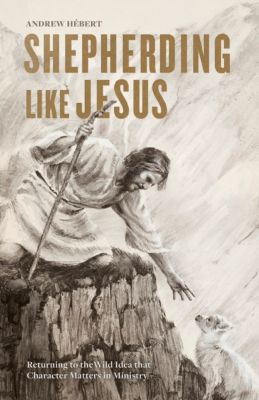
As we seek to lead our churches, we should consider what Jesus meant when He said He was sending His people as sheep in the midst of wolves.
By Skylar Spradlin
One of the great pastoral struggles of recent days is the common volatility that has transpired in American society and seeped into the life of the church. Lifeway Research’s 2022 Greatest Needs of Pastors study found 63% of pastors highlighted stress as an issue they needed to address.
A 2021 Lifeway Research study found 39% of pastors say they had encountered a significant personal attack from their church members. Additionally, 39% of pastors experienced conflict over proposed changes in the church. Furthermore, a quarter (25%) of pastors admitted they left their pastoral role at their previous church due to conflict. However, the same survey noted that only 12% of pastors encounter conflict over doctrinal differences, and 8% encounter conflict over political differences.
39% of pastors experienced conflict over proposed changes, compared to 12% who encountered conflict over doctrinal differences and 8% over political differences, according to Lifeway Research. Click To TweetThis means that most pastors experience significant conflict in the church not over doctrinal or political matters but over preferential matters. With such conflicts coupled with increased workloads and high expectations, it’s no wonder that 63% of pastors identify stress as one of their greatest needs to be addressed.
The church should consider such responses and ask why. Why do God’s people seem to be constantly embroiled in conflict? Why do 80% of pastors expect to have conflict in their current church in the future? Why does conflict seem to be a hallmark of the modern American church?
As we read of the life of Christ, we find that although Jesus had plenty of conflict in His ministry, He rarely initiated the conflict. At every turn He was facing hostile religious leaders, but the conflict He endured characterized unbelieving religious leaders more than it characterized Jesus Himself.
As we read of the life of Christ, we find that although Jesus had plenty of conflict in His ministry, He rarely initiated the conflict. — @SkylarSpradlin Click To TweetInstead, Jesus was characterized by things like gentleness, patience, compassion, meekness, and humility as He said things like: “Take up my yoke and learn from me, because I am lowly and humble in heart” (Matthew 11:29, CSB). He also said things like: “Blessed are the humble, for they will inherit the earth” (Matthew 5:5, CSB). He gave instructions like: “If anyone slaps you on your right cheek, turn the other to him also” (Matthew 5:39, CSB). He told His disciples, “Look, I am sending you out like sheep among wolves” (Matthew 10:16, CSB).
Far from seeking controversy or conflict, Jesus advocated that His people be last instead of first, extend forgiveness to their offenders, serve others, pray for their enemies, and love their neighbors. He gave such instructions because these characteristics reflect the character of God.
As we seek to lead our churches well in the world today, we should consider what Jesus meant when He said that He was sending His people as sheep in the midst of wolves.
1. He acknowledges that the world will be like wolves.
Jesus isn’t ignorant of the world around Him. He knows the wickedness of the world and warns His followers of persecution. The metaphor Jesus uses in this passage is telling. Wolves are vicious, attacking to kill. They hunt and travel in packs. They have sharp teeth, and they go looking for their prey.
Jesus knows this is the environment He sends His followers into. He knows His people are the prey. He knows they will encounter predators and that these predators are dangerous. The enemy will hunt and try to kill.
2. He expects His people to be sheep, not wolves.
It is not the existence of wolves that makes Jesus’s warning so striking but the fact that He refers to His disciples as sheep. We get the part about wolves. It doesn’t take long to realize there are dangerous people in the world, but why are His people sheep?
In contrast to wolves, sheep are harmless animals. They don’t have a way to defend themselves. They don’t hunt, but rather, they graze on grass. They are often gentle creatures that run from a fight.
In calling His disciples sheep among wolves, Jesus doesn’t want His followers to respond like the world, think like the world, or act like the world. Click To TweetIn calling the disciplines sheep, Jesus is not advocating a fatalist view as if to say some people are wolves and some are sheep, and you must accept your status in life and learn to live with it. Instead, He is saying that He wants His followers to be sheep. He doesn’t want them to be wolves. He doesn’t want them to respond like the world, think like the world, or act like the world.
When the world is hostile, He wants them to be forgiving. When the world is dangerous, He wants them to be kind. When the world opposes the Kingdom of God, He wants them to be patient. He wants them to be sheep. He sends them as sheep, not as wolves.
3. Our calling is to live differently than the world around us.
Jesus expects His people to be different from the world. Rather than hunting and attacking people like prey, Jesus calls His people to be gentle, kind, compassionate, prayerful, and humble.
Jesus doesn’t seek to insulate His followers from the world. He sends them straight into the mess. In John 17 He admits to the Father that He isn’t praying for them to be removed from the world, but that they would be kept from the evil one. Jesus knew what they would encounter, yet He sent His disciples into the world to behave differently than the world. And He does the same for His followers today.
Jesus knew what His disciples would encounter, yet He sent them into the world to behave differently than the world. — @SkylarSpradlin Click To TweetToo often, well intentioned Christians behave no differently than people of the world. It may be presented under the guise of apologetics, defending the faith, or fighting for truth, but it’s done in the way of the wolf rather than the sheep. Christians act as wolves when they attack, seek out a fight, or snip and bite at each other. Christians live as wolves when they run one another off or act in a hostile, dangerous, and vicious manner.
Perhaps the reason so many pastors witness and experience conflict is because God’s people are acting like wolves rather than sheep. Perhaps the reason so many of our churches are thrust into chaos is because in our flesh we act like wolves instead of living life in the Spirit who leads us to live like sheep. This is not the calling of God’s people.
Living life as sheep in the midst of wolves is part of the cost of following Christ, and it is part of our testimony to the world. Click To TweetGod’s people do not get to explain away these verses based upon circumstance or situation. They do not get to reinvent or redefine these characteristics. Living life as sheep in the midst of wolves is part of the cost of following Christ. Responding to the world like the world will never win the world. Instead, God’s people need to be salt and light, distinct in a crooked and twisted generation. It is that distinction that highlights the glory, beauty, and power of the gospel. It shouts a testimony of the gospel’s changing might.
No doubt, pastors will face opposition and conflict as they lead their flocks—that’s to be expected when we live as sheep in a world of wolves—but it shouldn’t be a defining characteristic within the church.

Skylar Spradlin
Skylar is the lead pastor of Trinity Baptist Church in Weatherford, Oklahoma. He’s earning his Masters of Divinity from the Southern Baptist Theological Seminary and is the co-host of “Doctrine & Doxology” a weekly podcast geared toward helping Christians think biblically.









